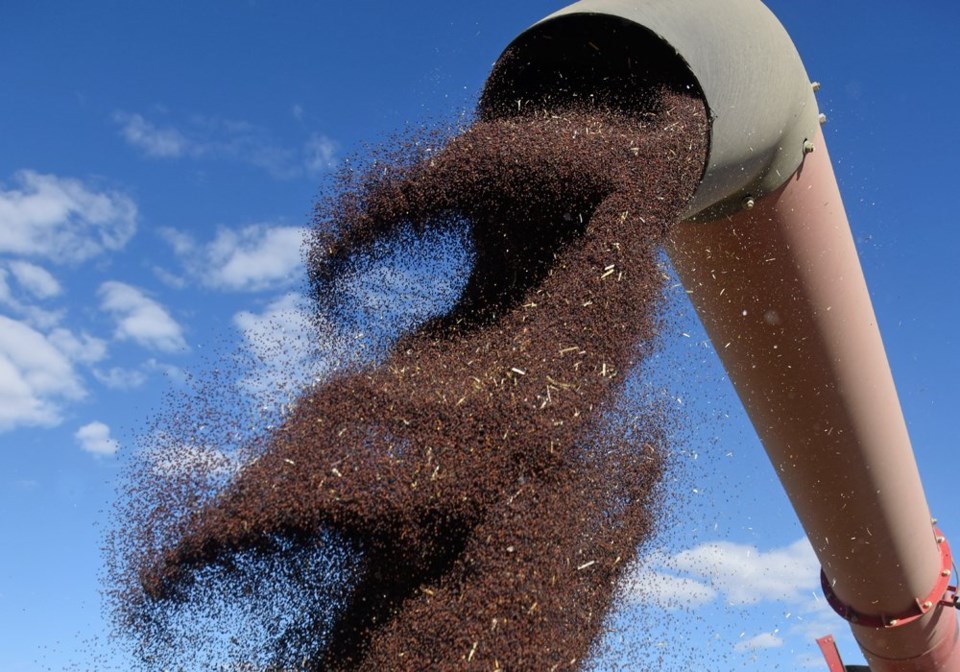When there is a shortfall or a dispute over a contract, many farmers believe the financial penalties are wildly inconsistent and not transparent.
The Agricultural Producers Association of Saskatchewan (APAS) surveyed farmers about grain contracts from late August to the end of November.
More than 200 producers responded to the survey.
About 75 percent said they couldn’t deliver the tonnage of grain spelled out in their contracts, thanks to the severe drought and extreme heat this summer. Many farmers recorded the worst yields of their career, with some reporting canola yields of 10 bushels per acre and oats at 30 bu. per acre.
“The survey… found producers unable to fulfill their contract this fall due to historically low yields are paying penalties and administrative fees between $20,000 and $300,000 to grain companies,” APAS said in a November 30 news release. “Many of the respondents also said the interest on their unpaid contracts was as high as 19 percent.”
The farmers who responded to the survey pointed to several issues:
- A lack of transparency in calculating buyout and administrative fees;
- Huge differences in settlement costs between different companies;
- Some companies did not allow an early buyout of the contract, causing the penalties to rise as commodity prices increased during the summer.
As well, although producers showed an interest in standard grain contracts and standard contract resolution procedures, many will not contract their crops in the future because of the lack of protection in contract arrangements.
One of the key complaints of producers, is that grain companies were not consistent in their handling of contract shortfalls this summer and fall. In some cases, if a farmer had a contract to deliver 50,000 bu. of oats but only produced 40,000 bu. of oats — the grain company allowed the producer to fulfill the missing 10,000 bushels in 2022.
In a similar case, the company imposed a financial penalty on a different farmer, for failing to deliver the 10,000 bu. of oats.
Some growers feel that grain companies hold all the aces and kings when there’s a dispute over a contract.
“We had a lawyer look into these contracts, as an organization,” said Kenton Possberg, a director with the Western Canadian Wheat Growers in Saskatchewan.
“What he came back with, was that these contracts were extremely one sided, to the point that they’re 95 percent in favour of the grain company.”
A number of producers have questioned how the grain companies calculate the financial penalties. In basic terms, if the fee is $126,000, where does that number come from?
Wade Sobkowich, executive director of the Western Grain Elevator Association, acknowledged in October that there is confusion around administration fees and grain contracts.
In the end, the fee is usually how much it costs the grain company to buy the missing grain on the open market and the difference in value from the original contract.
Say a farmer is short 20,000 bu. on an oat contract and the contract price was $4 per bu. If the company needs to spend $7.50 per bu. to buy the missing 20,000 bu., the fee would be $3.50 multiplied by 20,000.
“No matter how you structure it, it most cases it comes down to replacement value,” Sobkowich said. “They (the company) have sold that grain. So, they need to acquire it somehow.”
APAS doesn’t have recommendations, right now, to fix grain contracts. That will likely come at a later date.
“We developed this survey to get more information about producers’ individual experiences with the grain companies, so we can develop ideas around improving provisions in future contracts,” said APAS president Todd Lewis. “It’s in the mutual interest of both producers and grain companies to develop a more workable system.”

